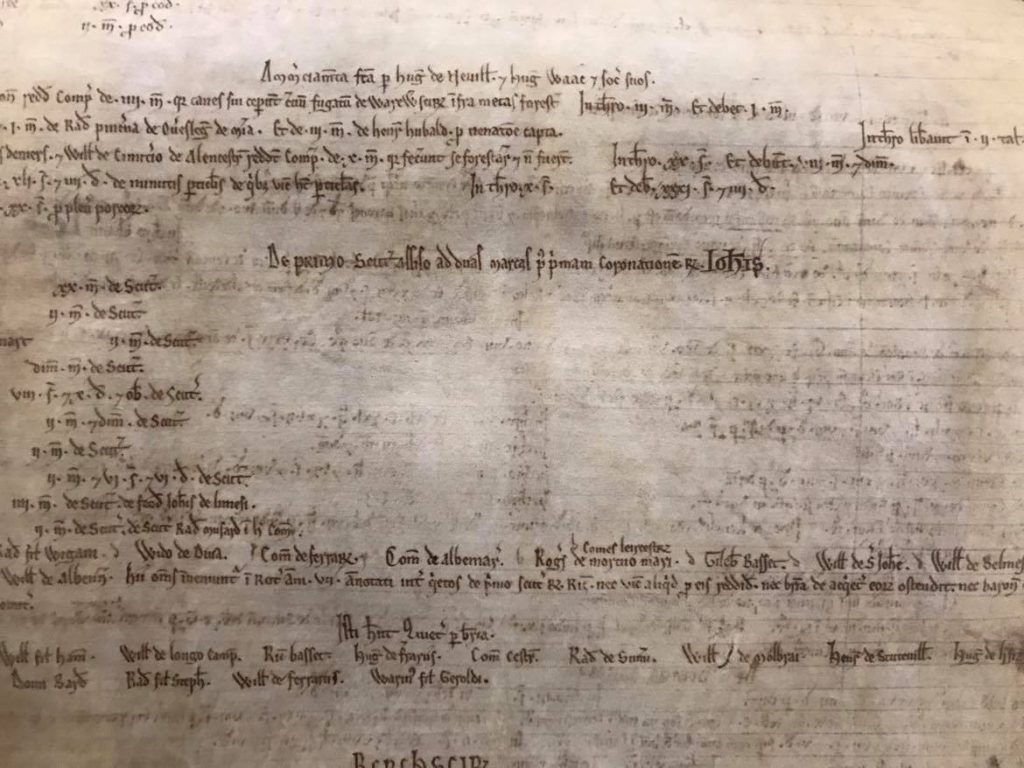In the latest in this new series, we talk to Dr. Daniel Booker about his doctorate, recently completed in the department.
After studying for his undergraduate and masters degrees at the University of East Anglia, Dan Booker (He/Him) received funding to undertake his PhD in History at the University of Bristol in 2018. Dan passed his viva in September 2021 and is currently a tutor at the University of Bristol and Research Associate at the University of Lancaster.
Hi Dan. First of all, congratulations on your successful viva! Can you tell us a bit about what your doctoral research was about?
My research explores the ways in which medieval bureaucratic institutions, routines, and cadres of officials could shape the exercise of power in the twelfth and thirteenth centuries. Specifically, my thesis focuses upon King John of England’s relationship with the exchequer (the body responsible for collecting and auditing debts owed to the king within his kingdom), as well as similar bureaucratic organisations operating within John’s various other domains, to explore the ways in which this institution could facilitate and/or impede the exercise of power by the king over his subjects.
Whilst my research deepens our understanding of how the exchequer could serve as a potent tool of political, social and financial discipline, my thesis also argues that institutionalisation, inertia and officialdom within this organisation simultaneously constrained royal agency and the king’s ability to raise finances in ways that carried profound consequences for the tenor and development of royal government in England and Ireland in the thirteenth century and beyond.
Overall, my thesis demands that we consider how rulers’ behaviour was shaped by the institutions and officials which underpinned their rule.
What did you enjoy most about your project?
Whilst the majority of my primary sources are available in print, the most enjoyable and exciting aspects of my research involved visiting archives to engage with original manuscript documents in situ. You’ll always be surprised at what you find (or what others have missed) when you work with even the most well-known or well-studied documents, and some of the most important findings of my own research came from chance discoveries in manuscripts.
My best piece of advice for anyone about to undertake archival research is to take pictures of everything you look at, as you never know what will become useful further down the line!
Let’s talk about the viva itself. What would you advise someone who is preparing for their own viva?
I would echo a lot of the advice my peers have already provided.
Try not to overprepare, but in the end do whatever makes you feel most comfortable and confident going into the viva. Before my own viva I re-read my thesis once in full, as well as some key pieces of secondary literature and some of my internal and external examiners’ publications. Whilst you can’t ever predict exactly what your examiners will ask you, I did find it useful preparation to go come up with answers to some of the most common questions that are asked by examiners (the BDC’s training sessions on vivas are great in that respect!) and rehearse them with friends, colleagues and family members.
When re-reading my thesis I also found it beneficial to try to reframe any potential ‘weaknesses’ or shortcomings that came up as conscious choices and to think carefully about why I chose to structure my thesis/approach a subject in this or that way. Apart from that, always take a moment to collect yourself when you’re asked a question and always address the examiner’s question first (even if you don’t know the answer) before going on a tangent!
What’s next for you? Where can we find your research now?
For now I am splitting my time between teaching at Bristol and working as a Research Associate for Lancaster University on a project that will create a class-list of documents relating to the earldom-duchy of Lancaster’s Lancashire lands (1267-1348) which are held at The National Archives in Kew.
In terms of my research and writing, I published an article earlier this year within the Journal of Medieval History, and I have a co-authored chapter coming out next year as part of the forthcoming Cambridge Companion to the Age of William the Conqueror.
Now that I have finished my PhD, I am looking to approach potential publishers with a view to converting my thesis into a monograph.
We’re looking forward to it, too!


